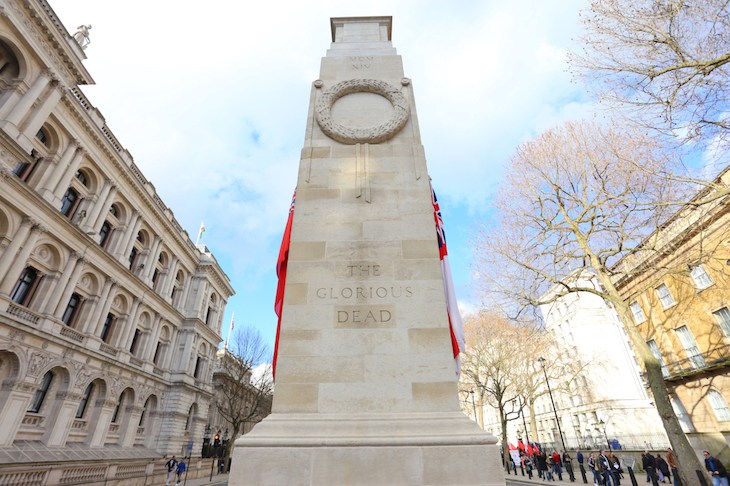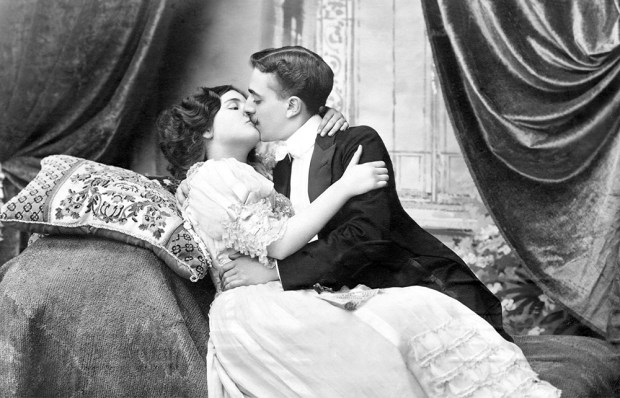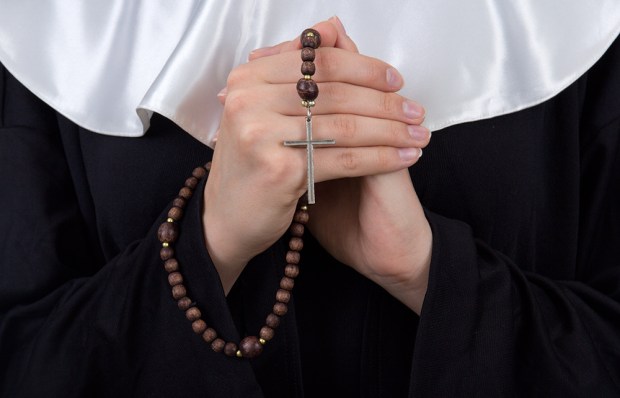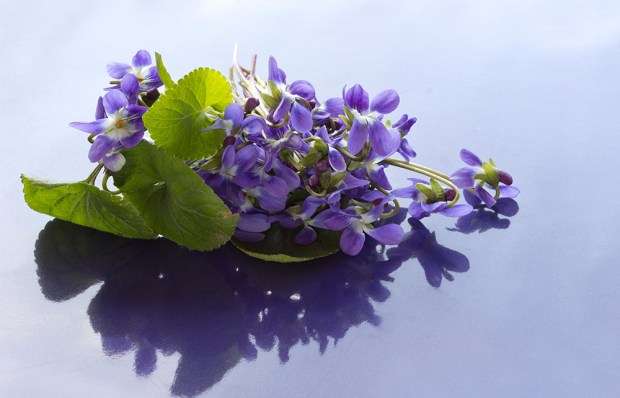We ascended the gangplank and were smartly directed to the ship’s library, where the seated purser swiped my debit card and took our passports. This purser’s face was prematurely aged, disfigured by misfortune, implacably hostile. Would she be keeping our passports until the voyage end, we asked humbly? We would get them back at the end of the cruise and not before, she barked, furious at our ignorance of the ship’s rules.
Cabin 302 was one deck down, next to the dining room. Catriona’s suitcase was already placed outside the cabin door. Mine perhaps had yet to complete its journey through the cruise-terminal security machinery. The cabin was roomier than expected. A sealed, chintz-curtained porthole vouchsafed a view of the horrible sea. While I investigated the facilities, Catriona filled the lockers with her clothes and erected our miniature portable Christmas tree. Then a German voice, speaking in English, filled the cabin. In five minutes’ time we were to assemble at the muster station wearing life jackets. The drill was compulsory for all passengers, it warned, and would include a roll-call.
The muster station was a section of the main deck between the Tropical bar and the library. Wearing our cumbersome life jackets, we joined about 100 other fluorescent orange Billy Bunters milling about. Presently, the owner of the loudspeaker voice appeared: a tall, blond Teuton with a piratical ponytail, bleached white teeth, white shirt, white shorts, white orthopaedic sandals. He climbed up on to a sea chest and from this orator’s stump described an increasingly desperate series of misfortunes and told us the plan of action for each one. If the captain gave the order to abandon ship, for example, we were to leave everything behind, even our medication, and simply drop over the side standing to attention. He then threw out questions to see whether he had made himself clear so far. ‘You,’ he said, singling out a woman of riper years. ‘The ship is going down. The call is made to abandon ship. What do you do?’ She rather thought she might assemble at the muster station wearing a life jacket. ‘So,’ said the blond beast, his jocular tone inviting his audience to share his incredulity at such idiocy, ‘the ship is going down, down, down. And you are standing at the muster station with your life jacket on, waiting, waiting, waiting?’
A crew member wearing blue nautical stripes fortunately interrupted her humiliation with a message on a piece of paper. Had we perhaps struck a reef already? The message was mundane. The occupants of cabin numbers 101 and 302 — me — must report immediately to the ship’s library.
I set off across the deck towards the library door. On the way I was intercepted by an ordinary seaman. She had spotted that I hadn’t bothered to secure my life jacket with the waist strap. She fought impatiently with my life jacket until she had found the strap end, threaded it through the loop and tugged it punishingly tight. With a rough shove she propelled me on my way again.
In the library I found a ship’s tribunal convened, presided over by an officer in tropical whites with a bald, spherical, sun-burnt head. A pair of blue-striped ordinary seamen had been posted to the library in case of trouble. The accused were myself and a fellow passenger, a gentle, calm, cultured Englishman aged about 80. The officer came straight to the point. We were both suspected of attempting to smuggle alcohol aboard. X-rays of our suitcases had revealed the presence of liquids. And this in spite of regulations underlined in our pre-departure information packs.
The suitcases were placed on separate writing tables, as though on pedestals. ‘Yours?’ said Baldy. We humbly assented. ‘Please open your suitcase,’ said the officer to the old English gent. He did so, revealing a bottle of Grant’s whisky. ‘I like to have a small glass of an evening,’ he explained confidentially. ‘And as you can see, it’s already been opened.’ The offending alcohol was passed into the safekeeping of an able seaman. My turn. I opened my suitcase, reached under a layer of clothes, and pulled out a pristine bottle of Beefeater gin clad in a duty-free plastic net. A fair cop. Baldy wasn’t satisfied yet, though. He knew all the tricks. ‘And the other one?’ he said. There was no ‘other one’, I said. As an officer and a gentleman, he took my word for it. We were issued with receipts and told that the alcohol would be returned to us on the last evening. ‘Gentlemen, enjoy your cruise,’ said Baldy, and we were dismissed.
Later on that first evening, I re-encountered Baldy among the drinkers at the Tropical bar. ‘Only two out of 115 passengers?’ I said. ‘Twelve, actually,’ he said. ‘And what’s the record?’ I said. ‘Twenty-seven,’ he said. ‘I bet that was a fun cruise,’ I said. He laughed. ‘It was,’ he said.
Got something to add? Join the discussion and comment below.
Get 10 issues for just $10
Subscribe to The Spectator Australia today for the next 10 magazine issues, plus full online access, for just $10.
You might disagree with half of it, but you’ll enjoy reading all of it. Try your first month for free, then just $2 a week for the remainder of your first year.















Comments
Don't miss out
Join the conversation with other Spectator Australia readers. Subscribe to leave a comment.
SUBSCRIBEAlready a subscriber? Log in